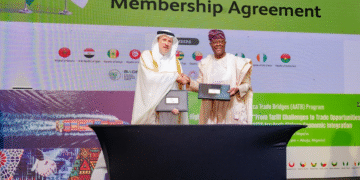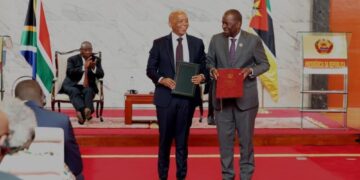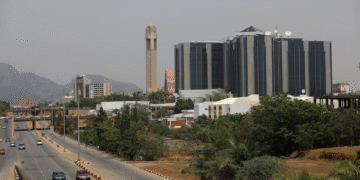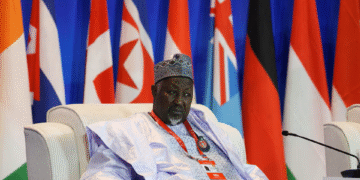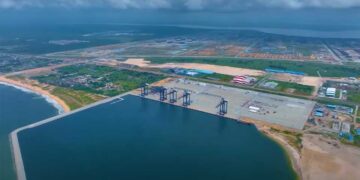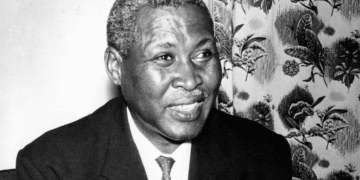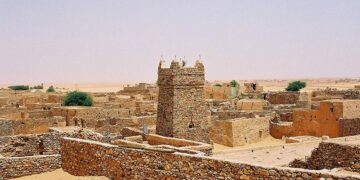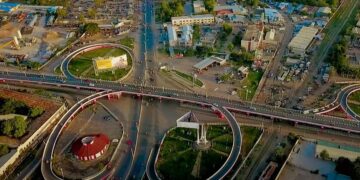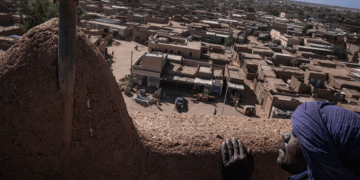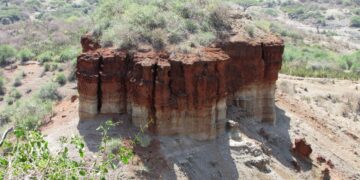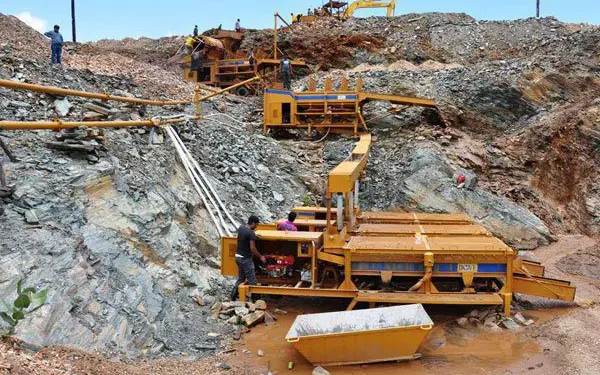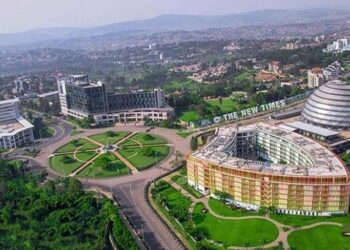During his State of the Nation address in 2022, President Museveni announced a significant discovery of up to 31 million metric tonnes of gold in Uganda. The value of this discovery, estimated at 320,158 metric tonnes of refined gold, could potentially be worth an approximate 12.8 trillion US dollars. Such a valuable natural resource presents an opportunity for Uganda’s economy to experience a transformational boost, provided that the mining process is conducted with the utmost transparency and accountability.
Transparency is crucial to combating the illegal trade of gold, which undermines tariff and revenue collection. According to INTERPOL, organised criminals are involved in illegal gold mining, generating up to 48 billion US dollars annually in criminal profits. In Uganda, gold has surpassed coffee as the country’s leading export, accounting for nearly 50 percent of its total export value. However, Uganda is consistently losing millions of shillings due to illegal gold mining. A recent policy memo reveals that Uganda’s gold is vulnerable to trade-based money laundering as it is a cash-intensive industry with limited oversight and traceability of origins. There is no clear data on the mines that produce gold within or outside of Uganda, and there have been reports of Uganda exporting more gold than it produces. Transparency can reduce the information gap by facilitating scrutiny and monitoring, thereby deterring corruption and increasing the chances of detection. It is imperative to dismantle the ‘mafias, a trifecta of powerful individuals, state and state-affiliated institutions, and those with strong political connections who are exploiting the gold sector.
While Uganda has been exporting gold worth over 2 billion US dollars annually since 2019, the country is still grappling with a massive public debt that currently stands at Shs 80 trillion, accounting for 50% of the Gross Domestic Product (GDP). Despite the huge revenue generated from gold mining, access to social services remains insufficient, and rural communities where the mines are located are lacking in basic amenities such as roads, water, and power. To fully realise the potential benefits of gold mining, it is essential that the government improve transparency and accountability in the sector. By involving the public in decision-making and increasing citizen participation, there is a legitimate opportunity to create jobs, business opportunities, and infrastructure development that can foster economic growth, raise living standards, and reduce poverty. Without this, the benefits of gold mining will continue to benefit only a select few, leaving the majority of Ugandans behind.
Given that gold mining is one of the most destructive industries in the world, accountability is necessary when estimating the cost of climate change. Gold extraction negatively affects the environment through destruction of the ecosystem, depletion of water quality, and loss of vegetation. Modern industrial gold mining generates significant amounts of toxic waste, which is often dumped into water bodies, leading to water pollution and the death of marine life. Deforestation and soil erosion are other environmental concerns associated with gold mining. The Notre Dame Global Adaptation Initiative (2021) ranks Uganda as the 13th-most vulnerable country in the world to climate change and 160th out of 192 nations in readiness to confront the threat. Despite this, President Museveni has made it unequivocally clear that Uganda will prioritise mineral development over environmental conservation. To address the impact of gold mining on climate change, it is essential to ensure accountability for its costs.
Gold mining also poses serious hazards to human life. The use of mercury in gold mining is highly toxic and has been proven to damage the kidneys, liver, brain, heart, lungs, colon, and immune system. Underground gold miners face a host of health issues, including decreased life expectancy, increased cancer risk, and the prevalence of various bacterial, viral, and musculoskeletal diseases. Fortunately, a project aimed at advancing a more responsible gold mining sector and reducing mercury use by 15 tonnes over five years has been launched across the country. It is crucial for the authorities to prioritise the health and safety of their citizens over the profits of gold mining and ensure that mining activities are conducted in a transparent and sustainable manner.
The hastily passed Mining and Minerals Act of 2022 hinders legal empowerment. Although awareness remains low, offenders of the law are to pay fines ranging from Shs 60–500 million, serve imprisonment terms of between 2 and 7 years, or both. The harsh penalties imposed by the legislation seem to criminalise gold mining and disenfranchise those who are unable to meet the stringent requirements. As a result, over 20,000 miners in more than 100 mines throughout the country have lost their jobs.
Additionally, the licencing system opens the door for bureaucracy and various forms of corruption. Previously, there were allegations of systemic corruption at the Directorate of Geological Survey and Mines (DGSM), the government body that awards mining licences and operates under the Ministry of Energy and Mineral Development (MEMD). The now disbanded Police Mineral Protection Unit was also accused of extortion, engaging in illegal mining, and abuse of human rights. To address these concerns, the new Mining and Minerals Act establishes The National Mining Company (NMC) to handle the government’s commercial interests. It is essential that the NMC operate with the utmost transparency and accountability to avoid repeating the mistakes of its predecessors. To ensure a transparent and accountable system, citizens, suppliers, and public agencies should monitor the bidding and contracting processes to identify any potential corruption and discourage public officers from engaging in such activities.
Clear guidelines on compensation for landowners are vital since the entire property containing gold is constitutionally vested in the Government. The gold boom in Karamoja has pushed hundreds of families out of their ancestral homes. A report by Human Rights Watch found that companies have explored for minerals and actively mined on lands owned and occupied by customarily owned land without the landowner’s consent. The law specifically states that compensation will only be paid “on demand” by the landowner and must be requested within one year of the damage. Given the very limited knowledge of landowners as to their rights under the mining law, it is likely that rightful compensation payments are neglected. It is only through holding the government accountable that the landowners receive fair and appropriate compensation for their land and resources.
Gold has the potential to revolutionise Uganda’s economy, accelerate development, and alleviate poverty. With proper management and accountability, Uganda could become a major player in the global gold market, providing opportunities for job creation and infrastructure development. Stakeholders must act with vision and purpose to seize this historic opportunity for the benefit of all Ugandans.
ــــــــــــــــــــ
This article expresses the views and opinions of the author, and does not necessarily reflect the views of Qiraat Africa and its editors.


